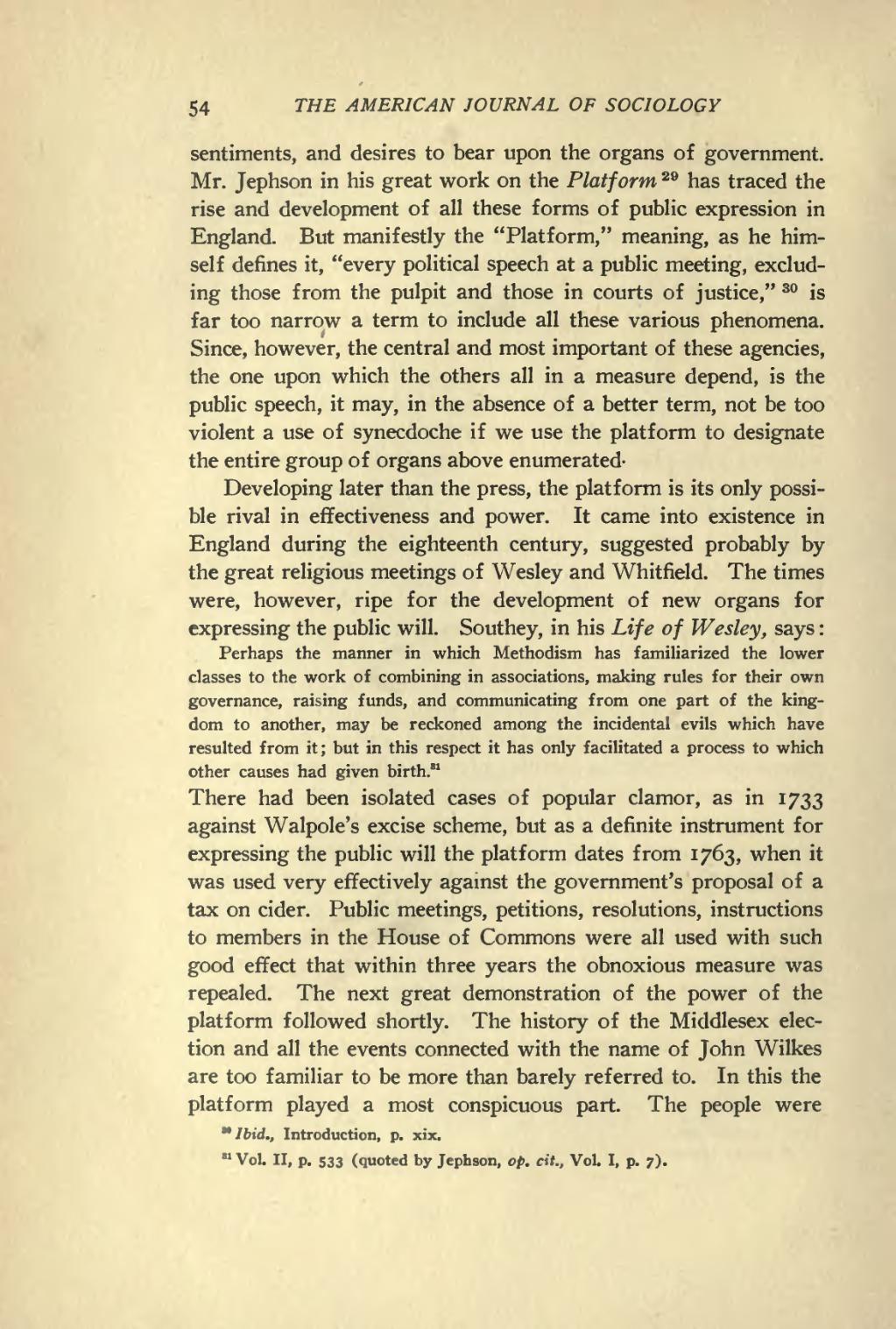54 THE AMERICAN JOURNAL OF SOCIOLOGY
sentiments, and desires to bear upon the organs of government. Mr. Jephson in his great work on the Platform ^^ has traced the rise and development of all these forms of public expression in England. But manifestly the "Platform," meaning, as he him- self defines it, "every political speech at a public meeting, exclud- ing those from the pulpit and those in courts of justice," ^^ is far too narrow a term to include all these various phenomena. Since, however, the central and most important of these agencies, the one upon which the others all in a measure depend, is the public speech, it may, in the absence of a better term, not be too violent a use of synecdoche if we use the platform to designate the entire group of organs above enumerated-
Developing later than the press, the platform is its only possi- ble rival in effectiveness and power. It came into existence in England during the eighteenth century, suggested probably by the great religious meetings of Wesley and Whitfield. The times were, however, ripe for the development of new organs for expressing the public will. Southey, in his Life of Wesley, says :
Perhaps the manner in which Methodism has familiarized the lower classes to the work of combining in associations, making rules for their own governance, raising funds, and communicating from one part of the king- dom to another, may be reckoned among the incidental evils which have resulted from it; but in this respect it has only facilitated a process to which other causes had given birth."
There had been isolated cases of popular clamor, as in 1733 against Walpole's excise scheme, but as a definite instrument for expressing the public will the platform dates from 1763, when it was used very effectively against the government's proposal of a tax on cider. Public meetings, petitions, resolutions, instructions to members in the House of Commons were all used with such good effect that within three years the obnoxious measure was repealed. The next great demonstration of the power of the platform followed shortly. The history of the Middlesex elec- tion and all the events connected with the name of John Wilkes are too familiar to be more than barely referred to. In this the platform played a most conspicuous part. The people were
- Ibid., Introduction, p. xix.
- Vol. II, p. 533 (quoted by Jephson, op. cit.. Vol. I, p. 7).
